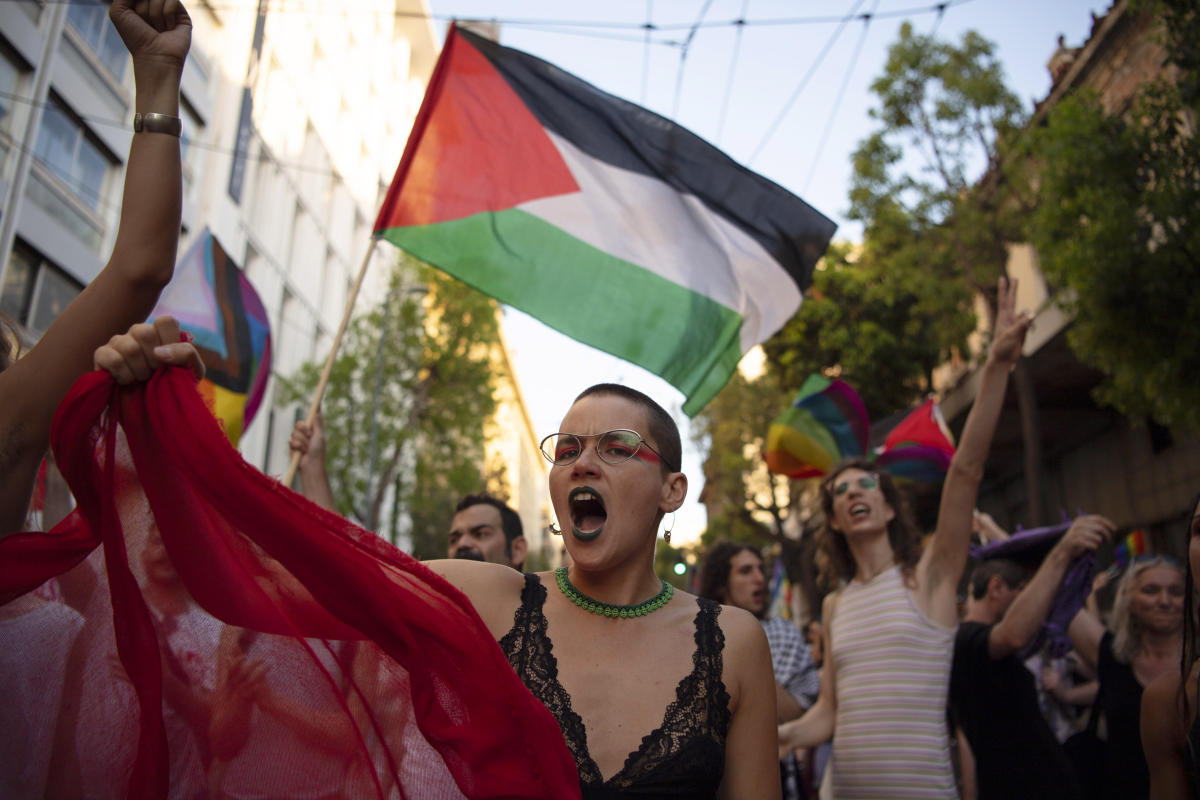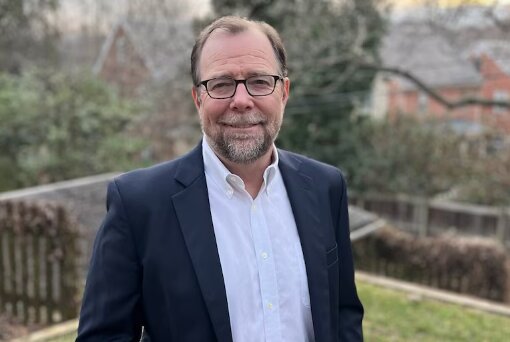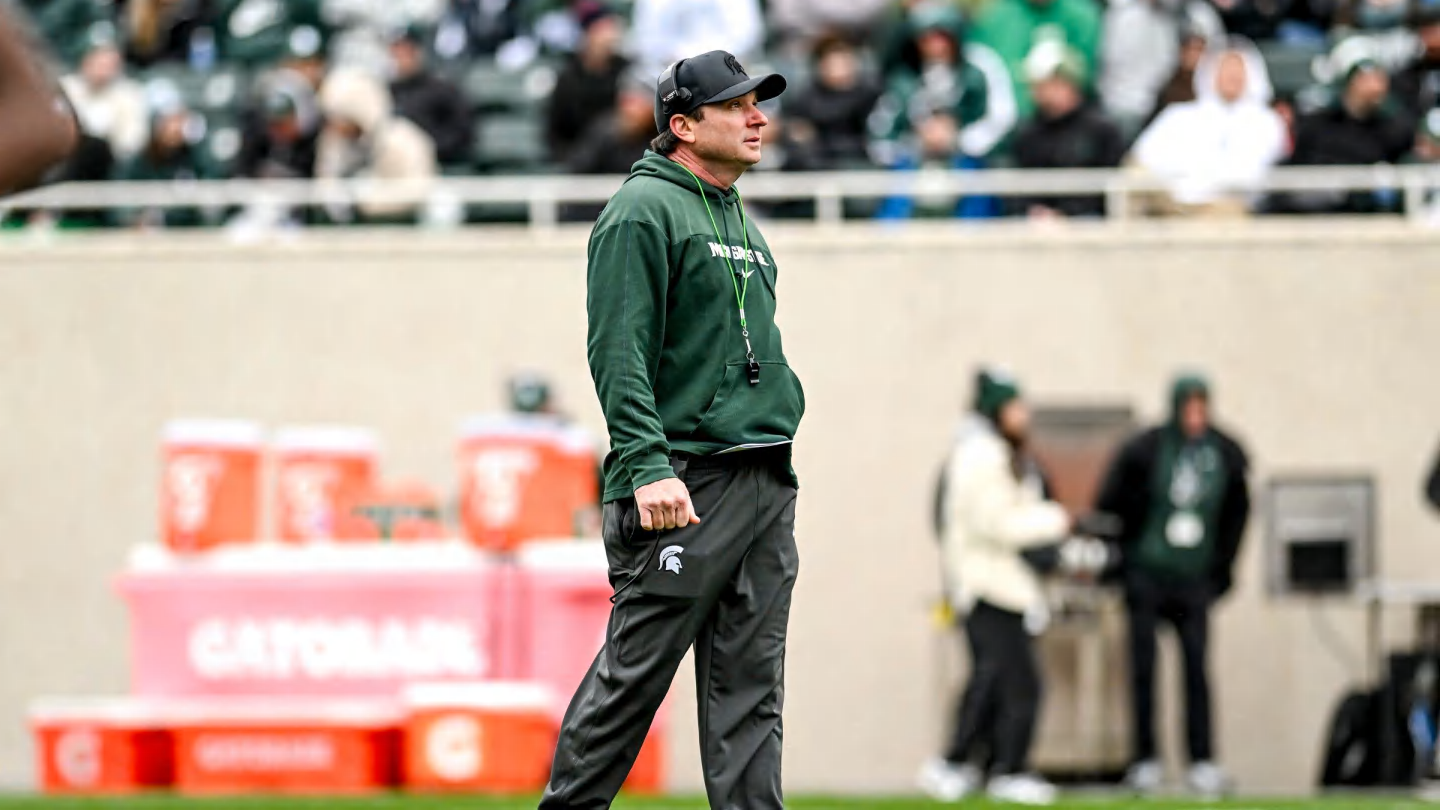As the LGBTQ+ Pride movement nears its peak, tensions over the war in Gaza reveal cracks

NEW YORK (AP) — In the run-up to New York City’s annual LGBTQ+ Pride march, organizers typically spend weeks determining the order of the floats and assigning placement based on factors such as seniority and music volume.
This year they are wrestling with an even more thorny question: How to plan a parade whose participants accuse each other of war crimes and supporting terrorism?
At Pride events across the U.S., internal tensions over the ongoing war between Israel and Hamas in Gaza seeped into the celebrations, sparking boycotts and demonstrations at marches, exposing divisions within a movement rooted in protest.
In New York, representatives of the Israeli consulate said they would march this year despite the participation of several other groups and at least two of the parade’s four grand marshals, who accused the country of genocide against the Palestinians.
Their usual float, decorated with rainbow-colored flowers and a Star of David, will be flanked by an additional layer of private security as the march begins this Sunday.
“Unfortunately, there are many people in the LGBT community who would rather be on the side of the enemy, on the side of the homophobes, rather than on the side of Israel,” said Itay Milner, a spokesman for the consulate. “We are aware of this sentiment, but we are not deterred.”
Elsewhere in the line of hundreds of groups parading, members of Tarab NYC, an advocacy group representing queer people from the Middle East and North Africa, say they will try to “center Palestine” during the march, raising Palestinian flags and chanting, “No pride in genocide.”
Protesters with the group recently took part in de-escalation training after being booed and chased by counter-protesters at a Pride event in Brooklyn this month, according to the group’s founder, Bashar Makhay.
As the war in Gaza dragged on, similar confrontations emerged in many areas of public life, leading to demonstrations and clashes on university campuses and in more neutral venues, including some recent Memorial Day parades.
But the conflict has created an unusual dynamic for some Pride participants, who must now face protests not only from far-right agitators and other outside groups, but also from activists in their own community. In recent weeks, pro-Palestinian LGBTQ+ groups have disrupted demonstrations in Boston, Denver, Philadelphia and elsewhere to protest sponsors’ ties to Israel.
Several groups boycotted the Queens Pride Parade this month after the president of the LGBT network that organizes the event expressed strong support for Israel and rebuked Palestinian activists in an online post.
In San Francisco, Jewish groups expressed outrage after Pride organizers announced that there would be no Israeli float in this Sunday’s parade, one of the largest in the world. Organizers released a follow-up statement clarifying that no one who had registered for the event had been turned away.
The large annual Pride parade in Tel Aviv, Israel, was canceled last month out of respect for the remaining Hamas hostages in Gaza.
Sandra Perez, the executive director of NYC Pride, says the organization approaches its march with a “free speech mentality” and does not restrict registered participants’ messaging (though police officers are prohibited from marching in uniform). But she hopes the topic of war will not “silence other members of the community,” she said.
“Our concern is that people expressing themselves freely or protesting the issues they want to protest against do not overshadow the issues facing the LGBTQ community,” Perez said.
For supporters of the Palestinian cause, Pride events are a natural way to show solidarity with the oppressed, pointing out that the first march was held to commemorate the 1969 Stonewall uprising, a riot that began with a police raid on a gay bar in Manhattan.
In recent years, Black Lives Matter activists have briefly disrupted Pride events to call attention to the greater inclusion of people of color.
Some say the recent war protests have further exposed the widening divide between traditional queer institutions – including the parade organizers – and the younger and more diverse parts of the community who are increasingly speaking out about the plight of Palestinians.
“It’s safe to say that everyone is thinking about the genocide that’s happening in Gaza and Palestine everywhere,” said Raquel Willis, a transgender writer who will serve as one of the NYC Pride Parade’s grand marshals. “The difference is whether people are open about it or not.”
The reactions to the Gaza war have not only exacerbated existing tensions within the community, but have also created new rifts between once-allied groups.
Since 2019, left-leaning activists fed up with the growing corporate presence at NYC Pride have been holding their own event, the Queer Liberation March. The group has long been skeptical of outside funders and previously counted Housing Works, a nonprofit focused on fighting AIDS and homelessness, as its sole financial sponsor.
But this year, organizers announced that the march would target people exposed to “war and genocide” and youth of color, among others. Housing Works, however, declined to participate in the march.
In an email to staff, Housing Works CEO Charles King said the organization has not taken a position on the war in Gaza and will not do so at Sunday’s march.
“After much deliberation, we have decided that Housing Works should join the march under the banner of the first issue, the fight for our black and brown youth,” he wrote.
The organizers of the Queer Liberation March responded with a provocative message on Instagram: Those who “remain silent in the face of wars and genocides,” they wrote, “do not represent the values of the Queer Liberation March.”



